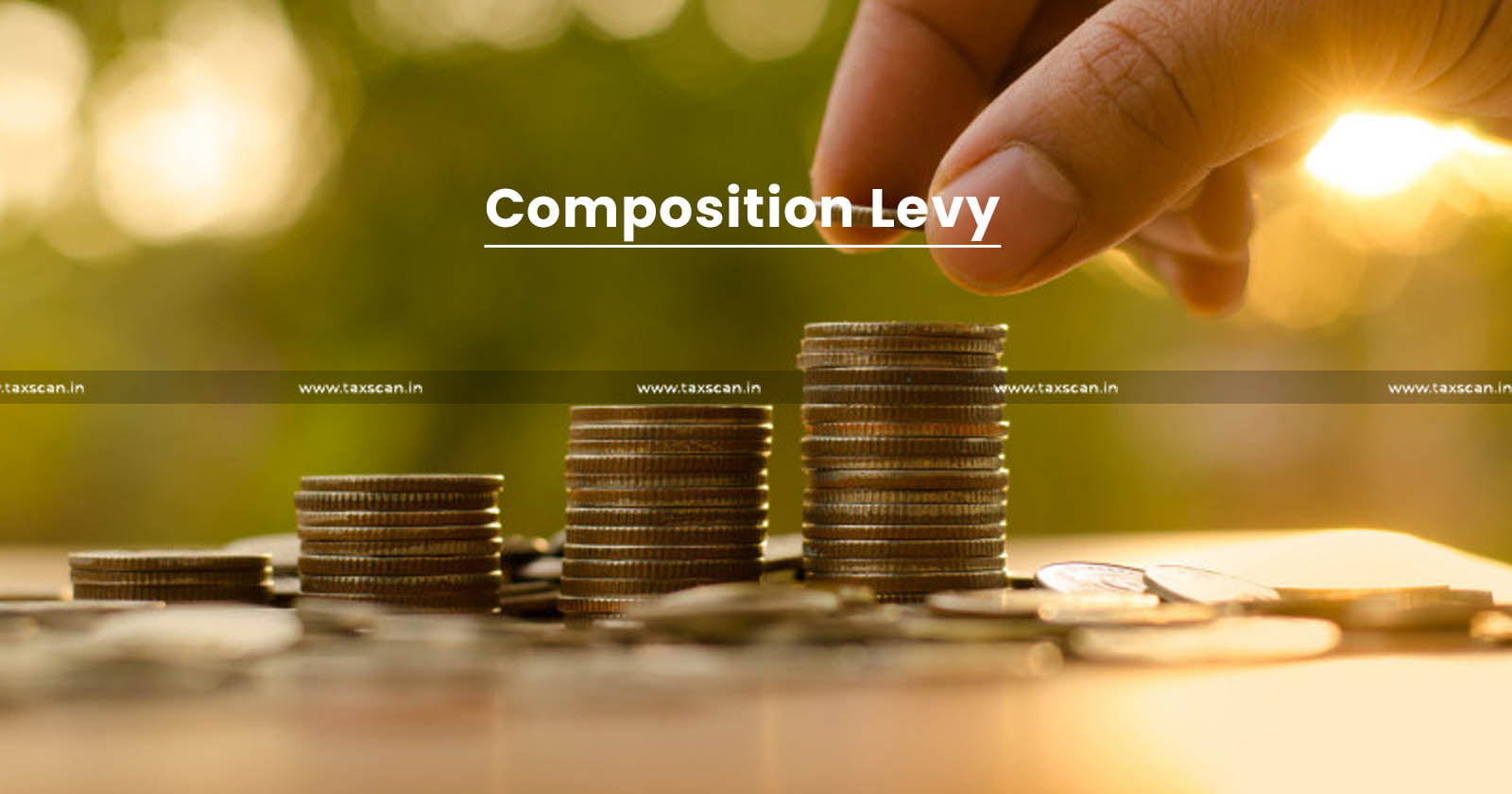Case Digest: Complete GST Cases on Composition Levy

Composition Levy (Section 10 of CGST Act)
Composition levy is a mechanism available to taxpayers wherein they can choose to pay tax at a fixed percentage on the state turnover.
Such a scheme is introduced to provide a very simple, hassle free compliance scheme for small taxpayers.
The major benefits enjoyed by taxpayers opting this scheme are,
- Non maintenance of elaborate books of accounts
- Quarterly return
- Quarterly payment of tax.
Who is Eligible To Opt For Composition Levy?
- Taxpayers whose aggregate turnover in the preceding FY does not exceed 5 crores
- The above threshold limit shall be 75 lakhs in case of 8 special category states.
Koothattukulam Liquors vs Deputy Commissioner of Sales Taxes CITATION: 2022 TAXSCAN (HC) 491
A division bench of Justice Ujjal Bhuyan and Justice Surepalli Nanda has held that a VAT dealer who has opted for a composition scheme under the Telangana VAT Act, 2005 shall not be subjected to regular assessment under the Act.
The bench observed that as per the relevant provision, any VAT dealer who executes a contract and opts to pay tax by way of composition, must register himself as a VAT dealer and he shall pay tax at the rate of 5% of the total consideration received or receivable. In a case where the VAT dealer opts for composition he shall before commencing execution of the work notify the prescribed authority in Form VAT 250 details of the contract on which composition option has been exercised. On receipt of the payment by the VAT dealer, he shall calculate the tax at 5% of the amount received and shall enter such details in Form VAT 200 thereafter the tax due shall be paid along with the return in Form VAT 200.
M/s. ORIENTAL CUISINES PVT. LTD. vs THE DEPUTY COMMISSIONER OF COMMERCIAL TAXES CITATION: 2020 TAXSCAN (HC) 257
The Karnataka High Court held that the prescribed authorities under the Karnataka value added Tax (KVAT) Act had no power to assess the petitioner-dealer under VAT Scheme for the period when the composition certificate issued under Rule 137 of the Rules was in existence. The Court further quashed the Re-assessment proceedings since the petitioner was ready to file VAT 100 returns and to pay the tax under the VAT Scheme subsequent to cancellation of the composition certificate.
The Court cited various case laws and observed that ”it is clear that unless the certificate issued under Rule 137 [Composition Certificate] has not been canceled, the Dealer-Petitioner herein would be entitled to continue with the benefit under Section 15 of the KVAT Act on composition scheme”.
M/s. LG Electronics India Pvt. Ltd vs The State of Tamil Nadu CITATION: 2022 TAXSCAN (HC) 428
The Madras High Court, while dismissing a bunch of petitions, including LG Electronics India Pvt. Ltd has upheld the constitutional validity of section 6 of the Tamil Nadu VAT Act, 2006 providing a compounding scheme under the Act. Pursuant to the recommendation of the Law Commission to plug the loophole as there was large-scale leakage of sales tax revenue by the adoption of various devices including the hire purchase system, a Constitutional amendment was made. Subsequently, some changes were brought to the VAT Act as well.
The bench held that “the compounding Scheme under Section 6 is only an option to be exercised voluntarily. There is no compulsion to opt under section 6 and it is open to a works contractor to pay taxes under section 5. The condition contained in section 6 cannot be regarded as giving any preference to one State over another or as discriminatory by levying more tax on the goods brought in from outside the State because the State by such amendment has not imposed any tax. Therefore, the Amendment does not infringe any of the guarantees or safeguards provided under the Constitution.”
Empathic Trading center (2020)(Karnataka) CITATION:2020 TAXSCAN (AAR) 122
The Karnataka Authority of Advance Ruling (AAR) ruled that the applicant is eligible for composition scheme under Section 10 of Central Goods and Service Tax (CGST) Act, 2017 if the turnover services of the applicant does not exceed the 10% of turnover in a state or union territory in the preceding financial year or for 5 lakh rupees, whichever is higher.
the authority consisting of members Dr. M.P. Ravi Prasad and Mashood Ur Rehman Farooqui ruled that the applicant is eligible for composition scheme under Section 10 of Central Goods and Service Tax (CGST) Act, 2017 if the turnover services of the applicant do not exceed the 10% of turnover in a state or union territory in the preceding financial year or for 5 lakh rupees, whichever is higher. “The applicant is not eligible to opt to pay tax under the notification dated March 7, 2019, of the government of Karnataka as the applicant is registered as a composition taxpayer. The rate of tax applicable on the entire value is 3% CGST and 3% KGST and he cannot pay tax at 1% on supply of goods and 6% tax on the supply of services,” the authority said.
M/s. Sushree Automotives vs State of Odisha and others CITATION: 2022 TAXSCAN (HC) 1050
The Orissa High Court Division Bench of Chief Justice S Muralidhar and Justice M S Raman has quashed the instruction of the Transport Commissioner-cum-Chariman, State Transport Authority dated 29.03.2016 that directed the Road Transport Officers (RTOs) to collect tax from the manufacturers/dealers of motor vehicles on the total number of vehicles possessed and registered during the year.
It was observed that, “Section 5 of the OMVT Act is a charging Section and in a taxing statute, it has to be strictly construed.” In regard to taxability, the court observed that, “the taxable event under Section 5 of the OMVT Act is the possession of vehicles by the dealer under the Trade certificate issued under the MV Rules.” With the impugned instruction to levy tax in view, it was further observed that, the impugned instruction is ultra vires of the OMVT Act itself. Resultantly, the collection of TC tax and TC fees were directed not to be made in terms of the impugned instruction, but only strictly in accordance with Section 5 of the OMVT Act read with Rule 81 of the MV Rules. Resultantly, the impugned instruction/circular was set aside. Considering the plea for refund of the collected fees and taxes, it was held that since there is lack of clarity about whether the burden of tax has shifted to the customers, no refund was to be made by the Motor Vehicles Department.
Del Small Ice Cream Manufacturers ... vs Union Of India & Anr. on 9 February, 2021
The petitioner, claiming to represent the interest of more than 50 small scale ice cream manufacturing units operating in the National Capital Territory of Delhi, has filed this petition impugning the decision dated 18th June 2017 of the Goods and Services Tax Council (GST Council), in the exercise of powers under Section 10(2)(e) of the Central Goods & Services Tax Act, 2017, of exclusion of ice cream from the benefits of Composition Scheme under Section 10 of the Act. It is the contention of the petitioner that the said exclusion is in violation of the spirit of Articles 14 and 19 of the Constitution of India and against the principles of natural justice.
The court held that the only direction which can be issued in this petition is, to direct respondent no.2 GST Council to reconsider the exclusion of small scale manufacturers of ice cream from the benefit of Section 10(1) of the Act, including on the aforesaid two parameters i.e. the components used in the ice cream and the GST payable thereon and other similar goods having similar tax effect continuing to enjoy the benefit. We direct accordingly.
The respondent no.2 GST Council to take up the aforesaid aspect in its next meeting and to take a decision thereon at the earliest, keeping in view that the ice cream season has just begun, and preferably within three months of today.
LOAFERS CORNER CAFE V. UNION OF INDIA (2020) (ERNAKULAM)
The petitioner, which is a partnership firm, has approached this Court aggrieved by the delay occasioned by the respondent in canceling an earlier registration, and granting him a new registration under the GST Act. It is the case of the petitioner that, while under the original registration it had opted for payment of tax on the normal basis, it had since filed an application for a fresh GST registration on 19.06.2018 so that it could opt for the compounded scheme for payment of tax in respect of the business carried on by the firm.
The court directed the respondents to make the necessary changes in the portal so as to enable the petitioner to file the returns for the period aforementioned without charging the petitioner any late fee or other charges on account of the delay occasioned by the respondent. The respondent shall do the needful to facilitate the uploading of the returns aforementioned, and the availment of the applicable input tax credit, within a period of one month from the date of receipt of a copy of this judgment. The petitioner shall produce a copy of this judgment together with a copy of the writ petition before the respondents for further action.
A.N.A.Naina Mohamed Sons vs / ( 2019) (Madras)
The petitioner herein, who is the dealer in Hardware and Paints had reported a total and taxable turnover for the assessment year 2007-08 and opted to discharge the taxes under composition scheme in terms of Section 3(4) of the 'Tamil Nadu Value Added Tax, 2006' . Pursuant to an audit carried out wherein, it was found that the dealer had collected tax in respect of three invoices, a notice under Section 3(4) of the TNVAT Act was issued proposing to levy tax under Section 3(2) of the TNVAT Act. The petitioner had given a reply admitting the taxes collected and submitted that the inadvertent collection of meager taxes was refunded to the buyers. However, the respondent herein was of the view that the dealer having opted to discharge his liabilities by way of composition scheme in terms of Section 3(4) of the TNVAT Act, was in violation of the conditions set out therein and thus, confirmed their proposal to levy taxes under Section 3(2) of the TNVAT Act and thereby, denied the benefit of composition scheme.
In the light of the observations, the petitioner is granted liberty to submit his objections before the respondent within a period of four weeks from the date of receipt of a copy of this order and on receipt of the same, the respondent herein shall consider the same on its own merits and pass appropriate orders, preferably within a period of twelve (12) weeks therefrom, after affording the opportunity of personal hearing to the petitioner. Till such time, the respondent shall refrain from taking any further action pursuant to the impugned proceedings.
Support our journalism by subscribing to Taxscan premium. Follow us on Telegram for quick updates


